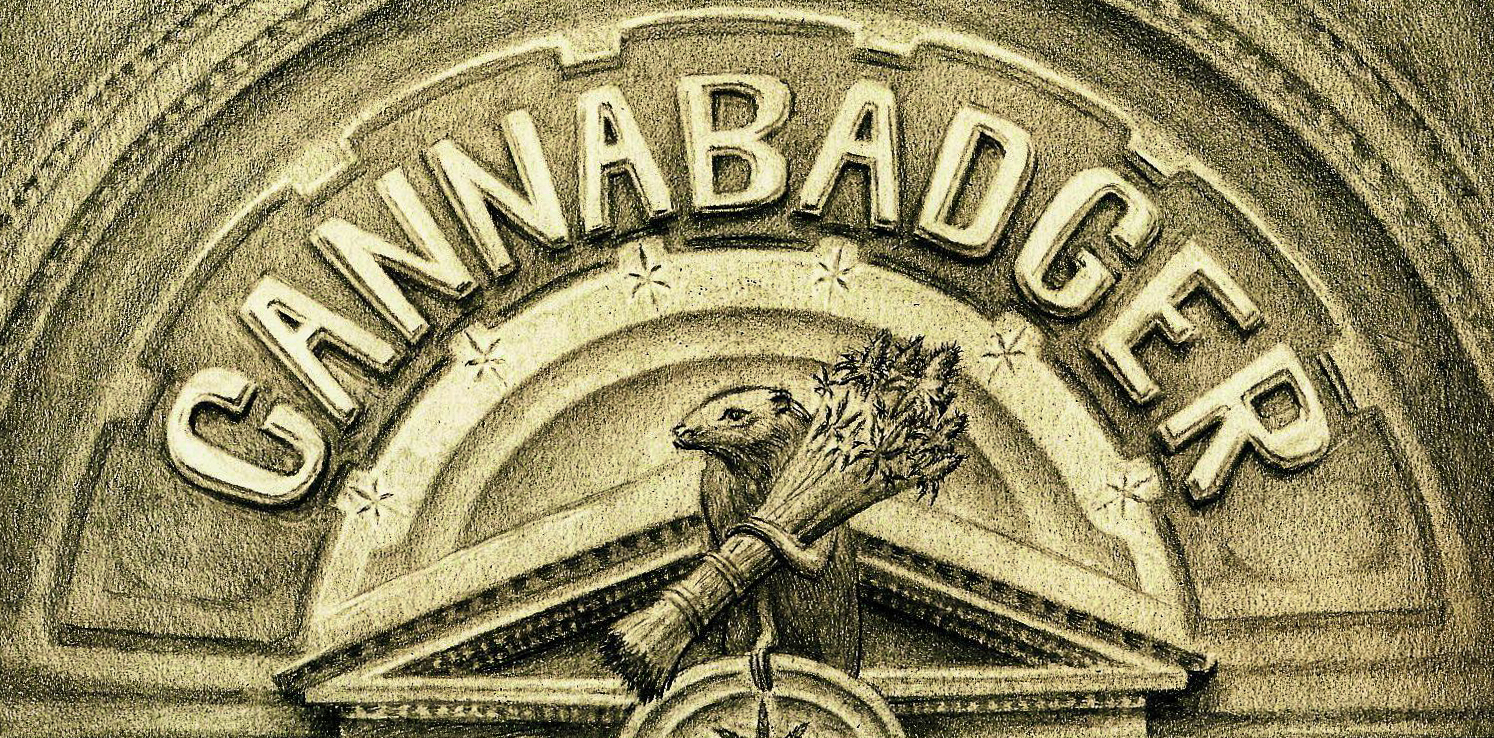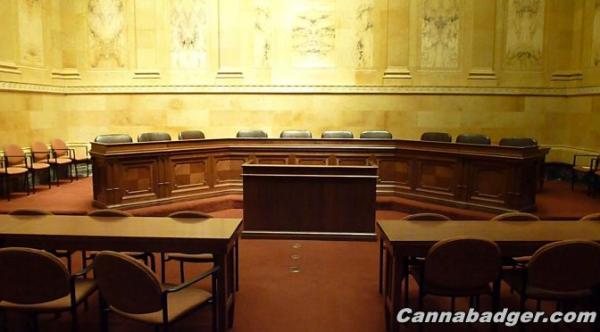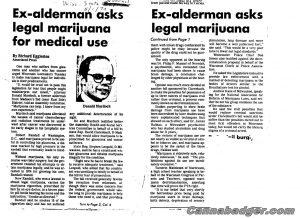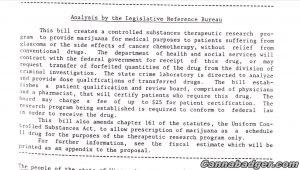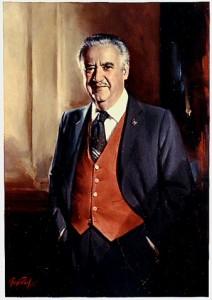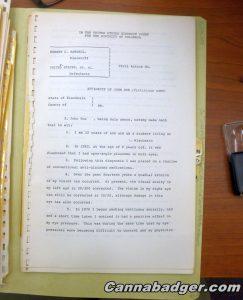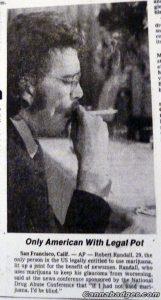38 years ago today as of this writing, on July 31, 1979, the first federal medical marijuana patient, Robert Randall came to Madison to testify at a hearing for a medical cannabis bill, 1979 AB279.
1979 Assembly Bill 279 was an early Wisconsin medical cannabis bill.
I took the Badger Bus up from Milwaukee where I was living at the time to attend the hearing in the Capitol’s North Hearing Room and meet Bob in person, one of only two times we met. I was a 24-year-old college student and like Bob, a glaucoma patient who stumbled upon medical cannabis as a treatment for the disease experimenting with pot. The public hearing covered state medical cannabis legislation as well as a cannabis decriminalization bill.
Analysis of 1979 AB279 medical cannabis bill by Legislative Reference Bureau.
With a diagnosis of congenital glaucoma at a young age, I was unknowingly already a medical cannabis patient starting with my first puff of cannabis sometime in 1971. But it was not until Oct. 3, 1972 I was able to document that cannabis could save my sight. After smoking some potent cannabis before heading to an eye checkup, my doctor found my usually elevated pressures perfectly normal. Around this time I also had read news articles about studies at UCLA on cannabis and glaucoma.
1976 news report Robert Randall – Only American With Legal Pot.
In 1976, I clipped a picture of Randall smoking a government joint titled “Only American With Legal Pot” from a local newspaper. An accompanying article discussed how after being arrested for pot, Randall sued the federal government and won and was provided with 10 pre-rolled marijuana cigarettes each day. It was Randall’s lawsuit that created the Compassionate IND program that, although long-closed to new applicants, still supplies 4 Americans with medical cannabis today.
Around 1977, I wrote Bob Randall and his wife Alice O’Leary in Washington, D.C. They soon put me in touch with Andy Kane at Wisconsin NORML. In an age without the internet, news of medical cannabis was scarce and Bob and Alice’s correspondence gave me hope through many a dark day. They sent me the paperwork for the IND program, but I could not find a doctor willing to challenge the federal bureaucracy.
June 4, 1979 letter from my glaucoma specialist regarding medical cannabis and glaucoma.
The most my glaucoma specialist was able to offer was to provide a June 1979 letter stating he was familiar with reports that cannabis lowered eye pressures and would prescribe it if he could. I began writing my state and federal representatives seeking their assistance in getting into the Compassionate IND program, including then U.S. Senators Gaylord Nelson and William Proxmire.
Front sheet of filed affidavit from Randall Archives at Wisconsin Historical Society in Madison WI.
In 1978, federal authorities cut off Randall’s medical cannabis supplies and he filed suit, I was asked to file an affidavit supporting his case. I was one of five glaucoma patients using cannabis as a treatment to file anonymous affidavits in his case. The oldest was 63 with myself the youngest at 22. Randall’s legal team submitted such a strong case with plenty of evidence that the government settled before trial, restoring his medicine. I found a copy of my anonymous affidavit in Robert Randall’s archives at the Wisconsin Historical Society in Madison.
Wisconsin Capitol’s North Hearing Room where on July 31, 1979, Robert Randall testified in favor of medical cannabis bill 1979 AB279.
Wisconsin NORML and Bob Randall notified me of the upcoming July 31, 1979 hearing, and I asked my Democratic Assembly representative, Steve Leopold to speak on my behalf. I am the person referred to in the article below. While I did not testify, I did provide committee members with a copy of my above referenced doctor’s note as well as a letter I wrote stating how cannabis helped with glaucoma and ocular migraines, which included this statement:
“I resent having to violate the law to treat a medical condition, which in my case cannot be completely controlled by conventional therapy.”
Bob Randall signs his book as Jacki Rickert and Irv Rosenfeld look on at the First Patients Out Of Time Conference in Iowa City IA in 2000.
Bob Randall passed on in 2001. Thanks to federally-supplied medical cannabis, he preserved his vision to the end. I was fortunate enough to see him one more time at the first Patients Out Of Time Conference at the University of Iowa in Iowa City, Iowa in April 2000. He was selling his excellent book, Marijuana Rx: The Patient’s Fight for Medicinal Pot, and I bought a copy which he signed for me.
Wisconsin Gov. Lee Sherman Dreyfus, who signed the Therapeutic Cannabis Research Act into law in April 1982. (State of Wisconsin)
In 1981, lawmakers passed the Therapeutic Cannabis Research Act, with the late Gov. Lee Dreyfus signing it in 1982. But, federal refusal to supply actual cannabis rather than synthetic THC (Marinol) eventually rendered it and similar laws passed by more than 32 US states symbolic. Bob Randall worked tirelessly to pass these therapeutic research acts. Keith Stroup, the founder of NORML and director in the 1970’s when Bob Randall first approached NORML about medical use has called Randall the “father of the medical marijuana movement.”
Wisconsin medical cannabis patient Jacki Rickert’s late doctor William Wright obtained approvals for her for a Compassionate IND in 1990, but the federal government refused to honor the approval. Cannabadger wrote about her 1992 appeal to candidate Bill Clinton in 1992 in an a post from August 2016.
Elvy in Madison in Oct. 2002.
Over the years, Madison has seen visits from other federal IND patients. Elvy Musikka, the sole remaining glaucoma patient, spoke at Harvest Fest in 2002. Irv Rosenfeld testified before a hearing held by Rep. Gregg Underheim in 2005 and George McMahon was at the Capitol in both 1997 and 2007, for the 1997 Journey for Justice conclusion and the November 2007 informational hearing on medical cannabis held by State Sen. Jon Erpenbach.
BELOW: August 1, 1979 article from the Wisconsin State Journal reporting on the hearing:
—-
Source: Wisconsin State Journal
Originally published on August 1, 1979
Author: Richard Eggleston, Associated Press
Copyright © 1979 Wisconsin State Journal
EX-ALDERMAN ASKS LEGAL MARIJUANA FOR MEDICAL USE
One man who suffers from glaucoma and another who has cancer urged Wisconsin lawmakers Tuesday to make marijuana legal for individuals in their predicaments.
“It would be cruel not to pass this legislation for fear that people might misinterpret our intent,” attorney Donald Murdoch, a former alderman from Madison’s 2nd (near East Side) District, told an Assembly Committee. “Marijuana can help. I know from my own experience.”
Murdoch said marijuana alleviated the nausea of cancer chemotherapy and radiation treatments he underwent after cancer was discovered in its early stages in his lymphatic system.
Robert Randall of Washington, D.C., said marijuana proved to be useful in controlling his glaucoma, a disease marked by high pressure in the eyeball that eventually leads to blindness.
Without marijuana, his only recourse was risky surgery, but the government resisted his attempts to obtain marijuana legally, and he was arrested in 1974 for growing his own, Randall related.
Now Randall, who won a lawsuit to obtain legal marijuana, carries the marijuana cigarettes, prescribed for him by an eye doctor, in a brown plastic pill bottle bearing his name and the instruction, “Smoke as directed.”
Randall said he smokes 10 of the cigarettes daily and has not suffered any additional deterioration of his sight.
He and Murdoch testified before the Assembly Health and Social Services Committee in behalf of a bill by state Rep. David Clarenbach, D-Madison, that would allow marijuana to be prescribed for glaucoma and cancer sufferers.
State Rep. Stephen Leopold, D-Milwaukee, said he has a constituent who has glaucoma and obtains marijuana illegally for the condition.
“Right now he has to break the law to receive adequate treatment,” said Leopold, who added that his constituent was unwilling to testify in behalf of the bill for fear of prosecution.
The bill received generally favorable reception from witnesses, although there was some concern that the federal government would take too long to provide marijuana to help those who need it, and that providing them with street drugs confiscated by police might be risky because the quality of the drug could not be guaranteed.
The only opponent at the hearing was Dr. Philip F. Mussari of Necedah, a psychiatrist, who contended that marijuana had been shown to cause brain damage, a conclusion challenged by other physicians at the hearing.
Opinion was much more divided on another bill sponsored by Clarenbach, to make the penalties for possession of up to three ounces civil rather than criminal, a process commonly known as decriminalization.
Studies purporting to show brain damage from marijuana use have been discredited by later studies using more sophisticated techniques that showed no such effect, said Dr. James Halikas, a Milwaukee psychiatrist who has studied alcoholism and drug abuse for 11 years.
The victims of marijuana use are not nearly as visible as victims of alcohol or tobacco use, and marijuana appears to be the safest of the three drugs, Halikas said.
“Marijuana is relatively safe, relatively innocuous,” he said. “The prohibitions against its use are inordinately excessive.”
Tamerin Mathieson of Sturtevant, a high school teacher speaking in behalf of the Wisconsin Congress of Parents and Teachers, opposed marijuana decriminalization, asserting that time will prove the PTA right.
“It is our belief that very shortly the horrendous price being paid by marijuana users in brain damage, birth defects, deprivation of sensory stimulation, lung damage and more will become a well-publicized fact,” she said. “This would be a very poor time to lower our legal standards.”
Whitewater Police Chief Don Simon also testified against the decriminalization proposal in behalf of the Wisconsin Chiefs of Police Association.
He asked the Legislature instead to provide law enforcement with a method of detecting marijuana in the bodies of drivers similar to the Breathalyzer test for alcohol.
Andrew Kane of Milwaukee, speaking for the National Association for Reform of Marijuana Laws, said neither he or his group condone the use of the substance.
He said the civil penalties that would replace criminal sanctions under Clarenbach’s bill would still be stiffer than the penalties meted out to most first offenders in Wisconsin today, but would not carry the lifelong stigma of a criminal arrest.
August 1, 1979 Wisconsin State Journal report on July 31, 1979 public hearing on 1979 AB279.
